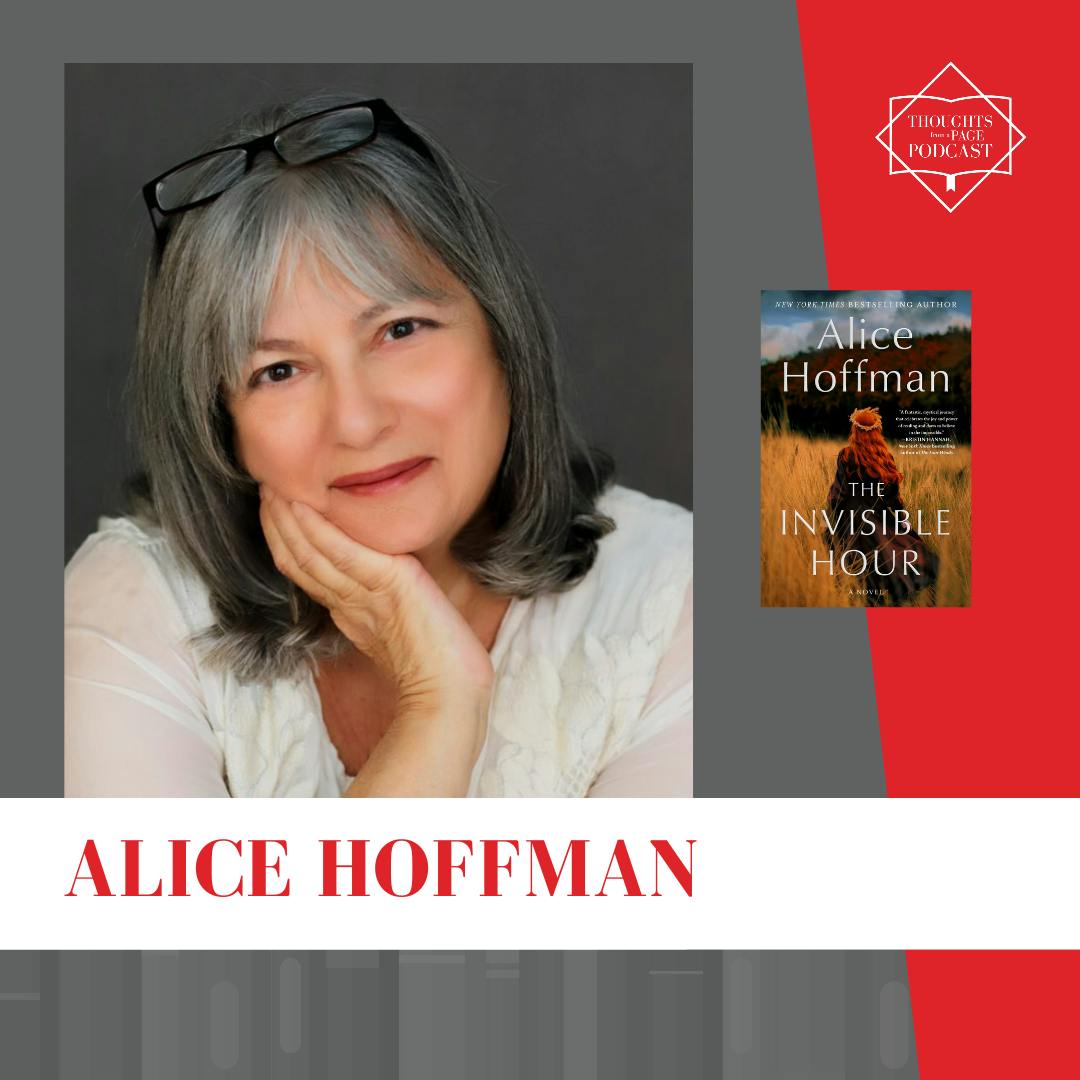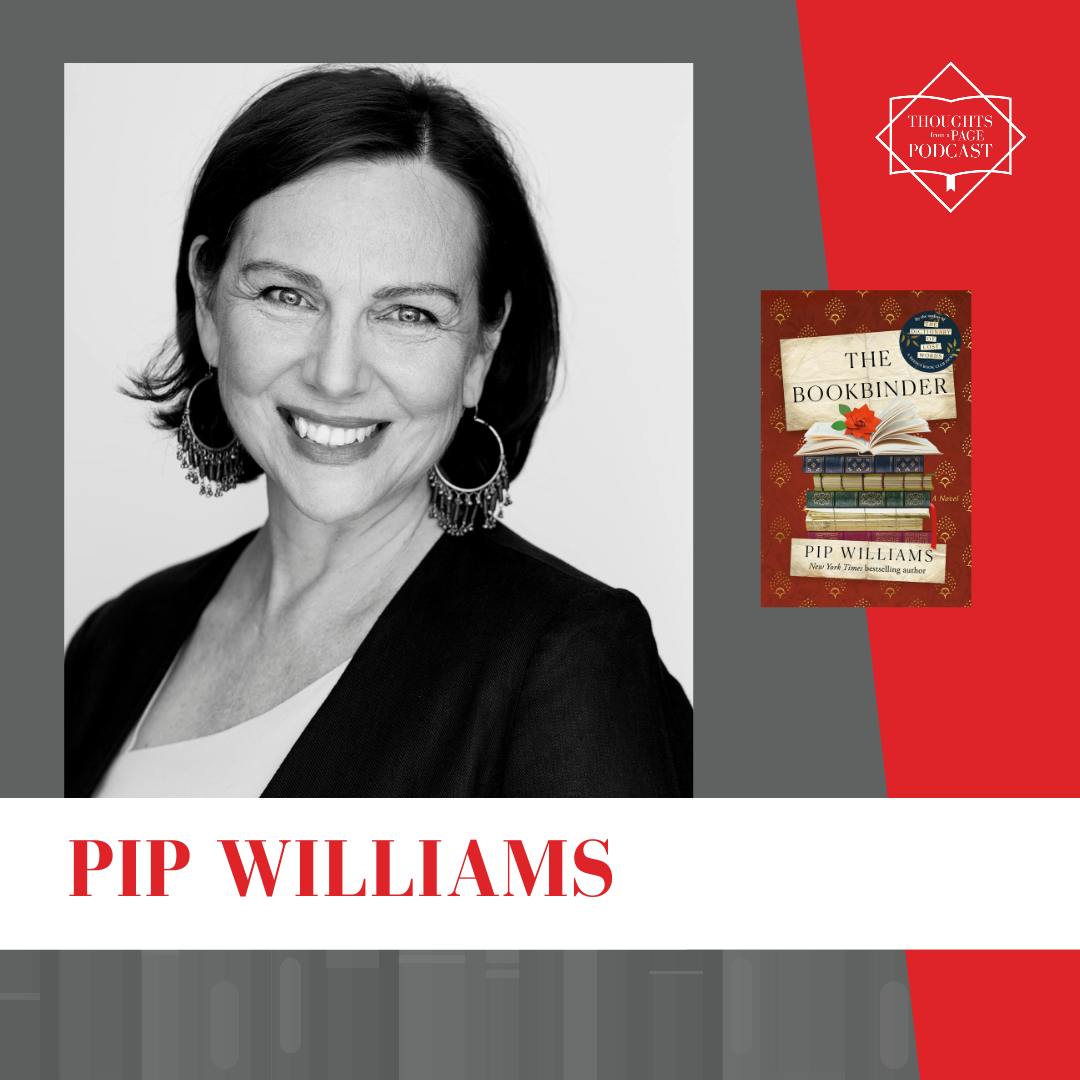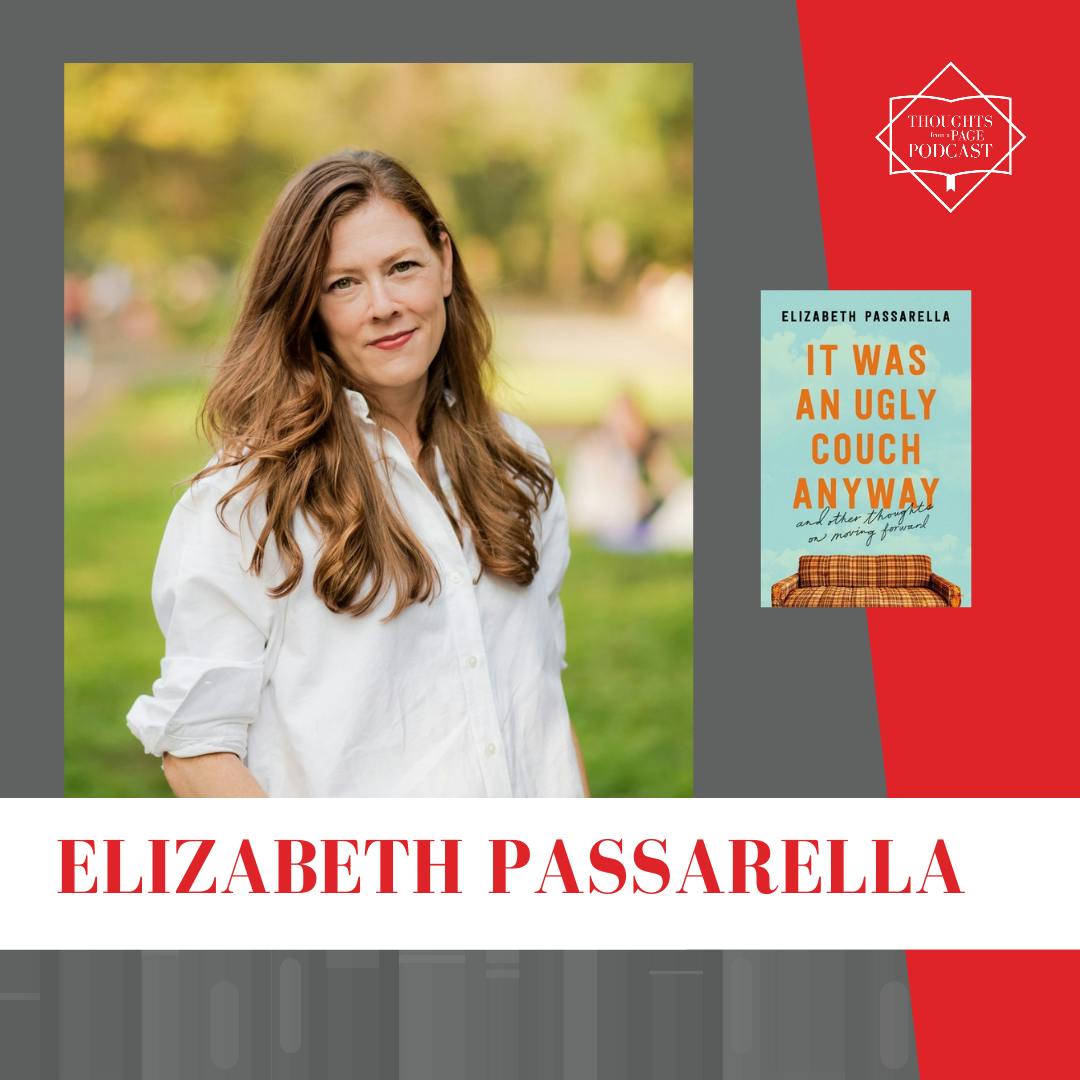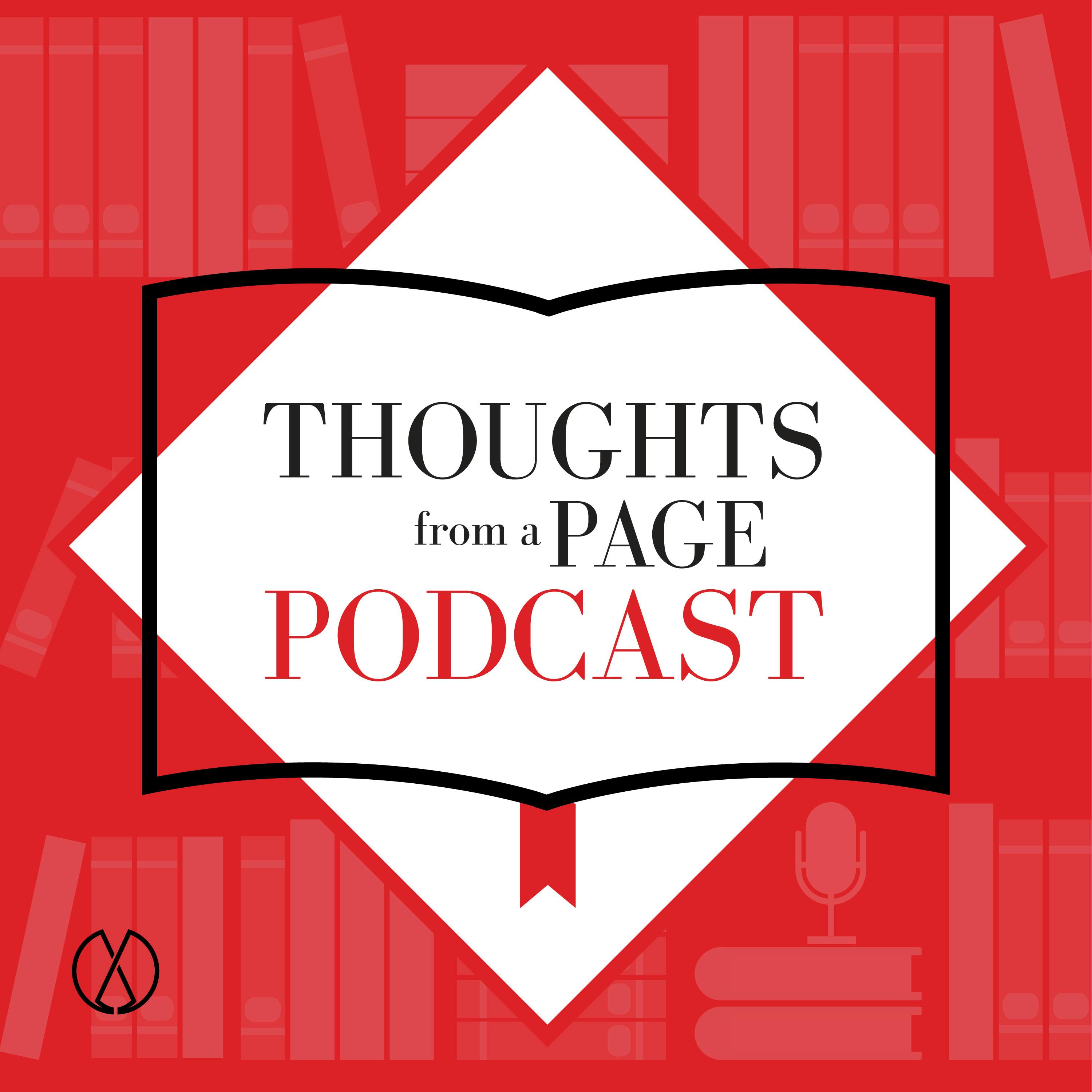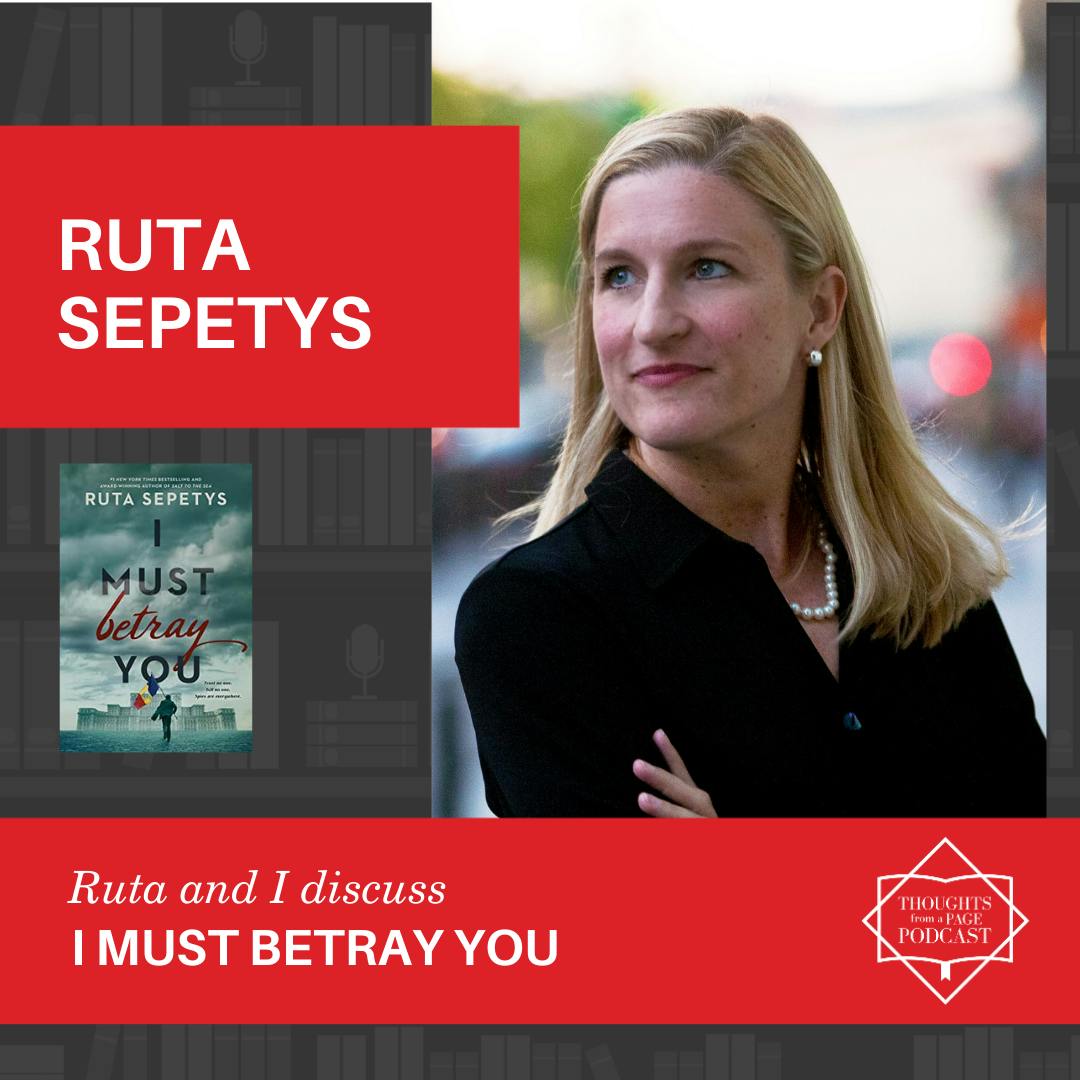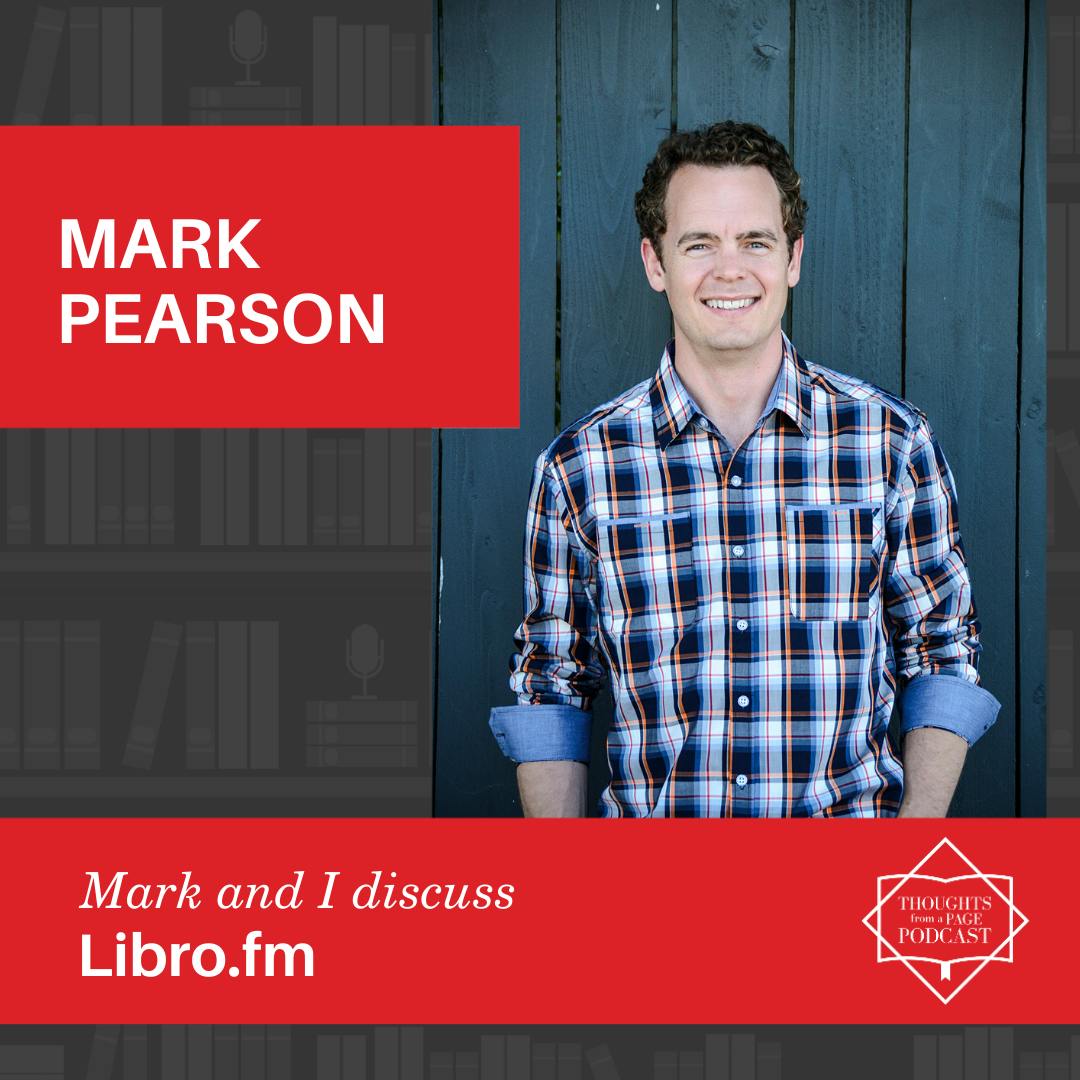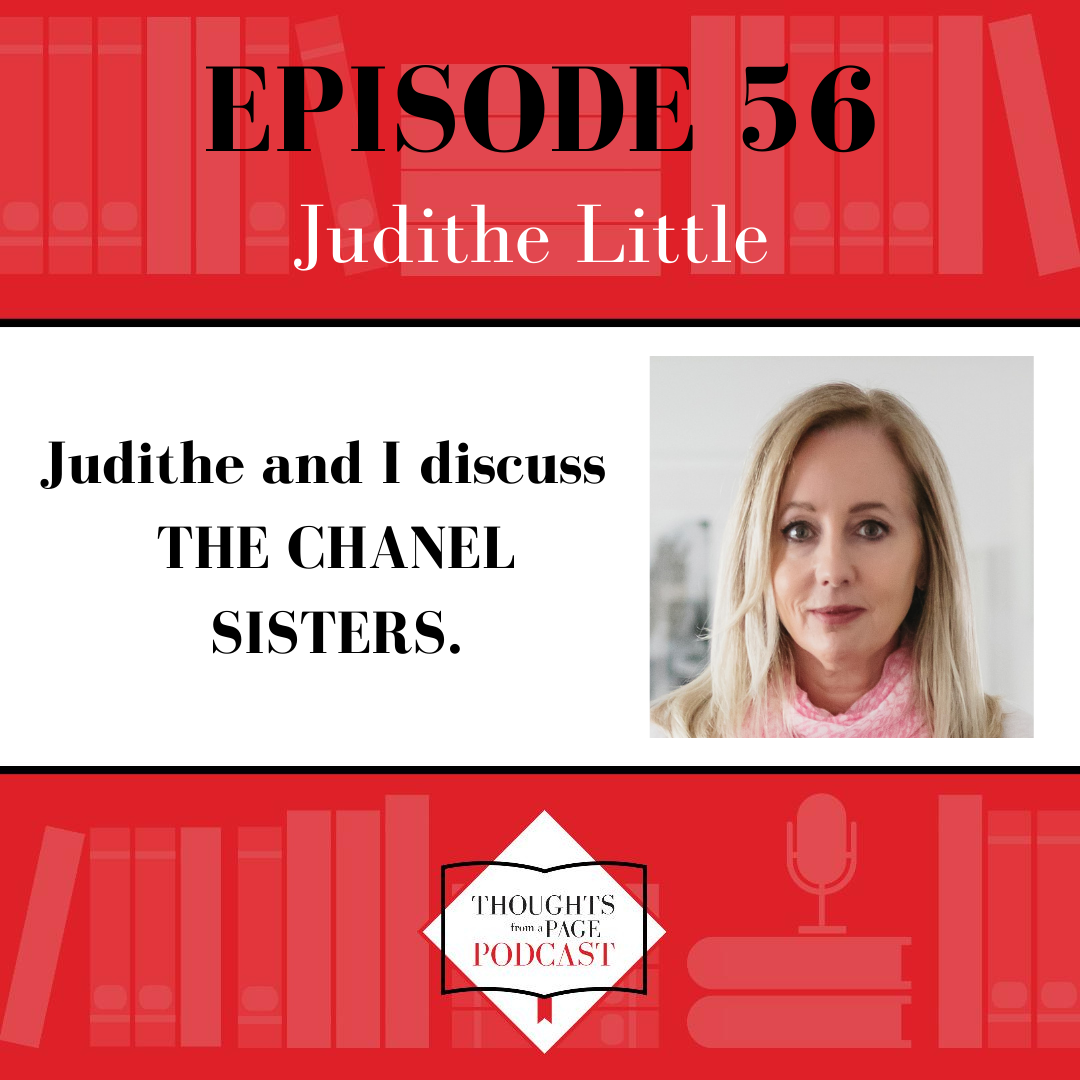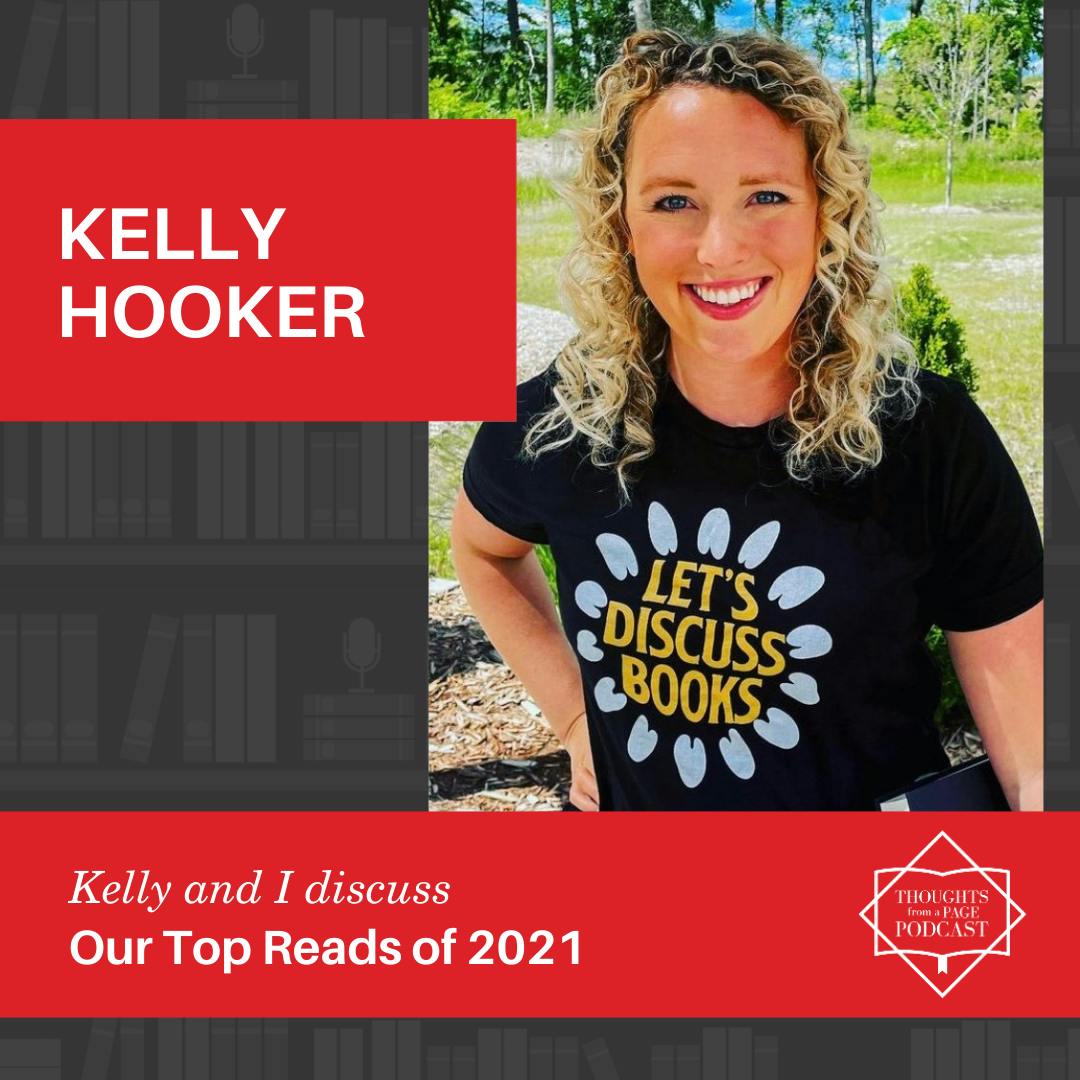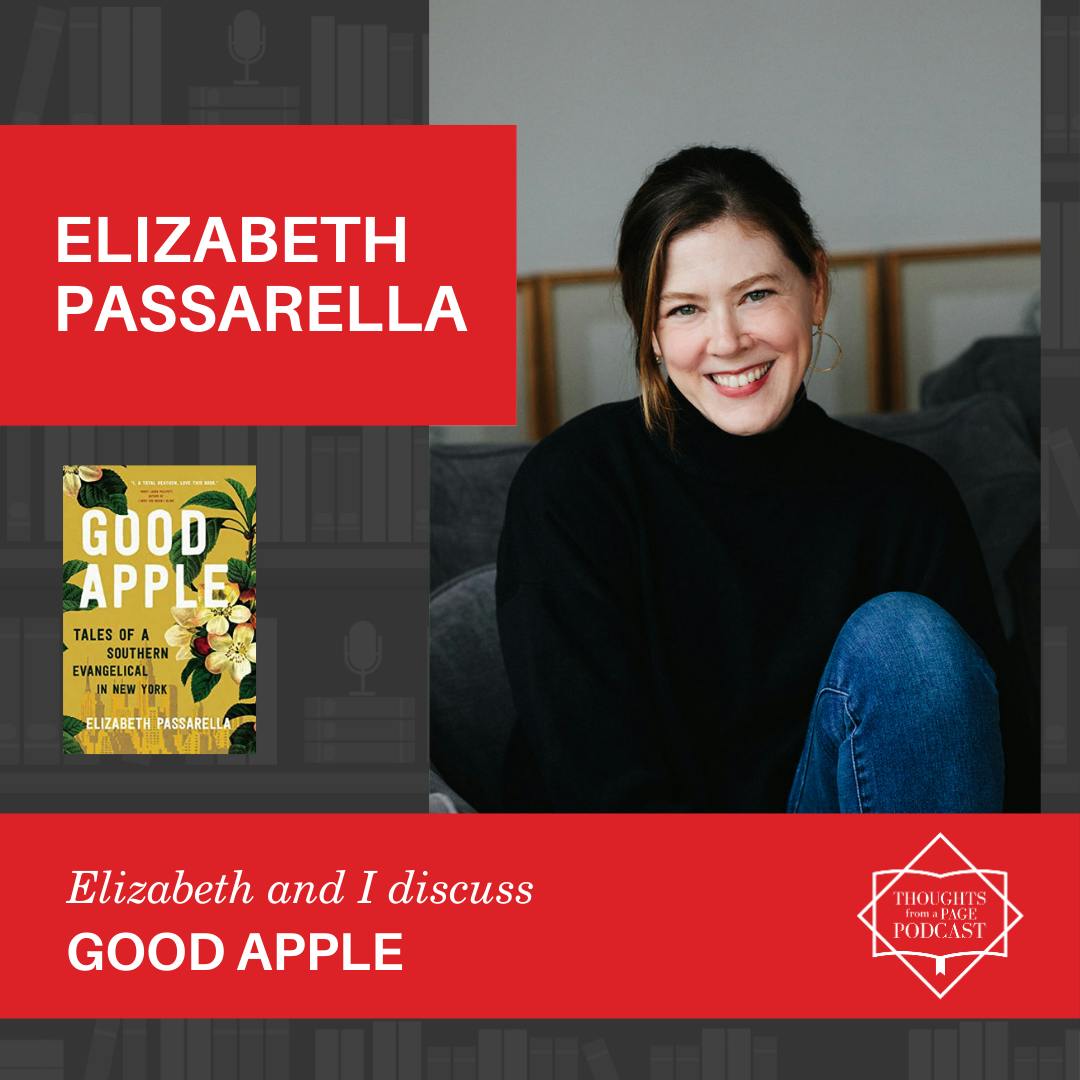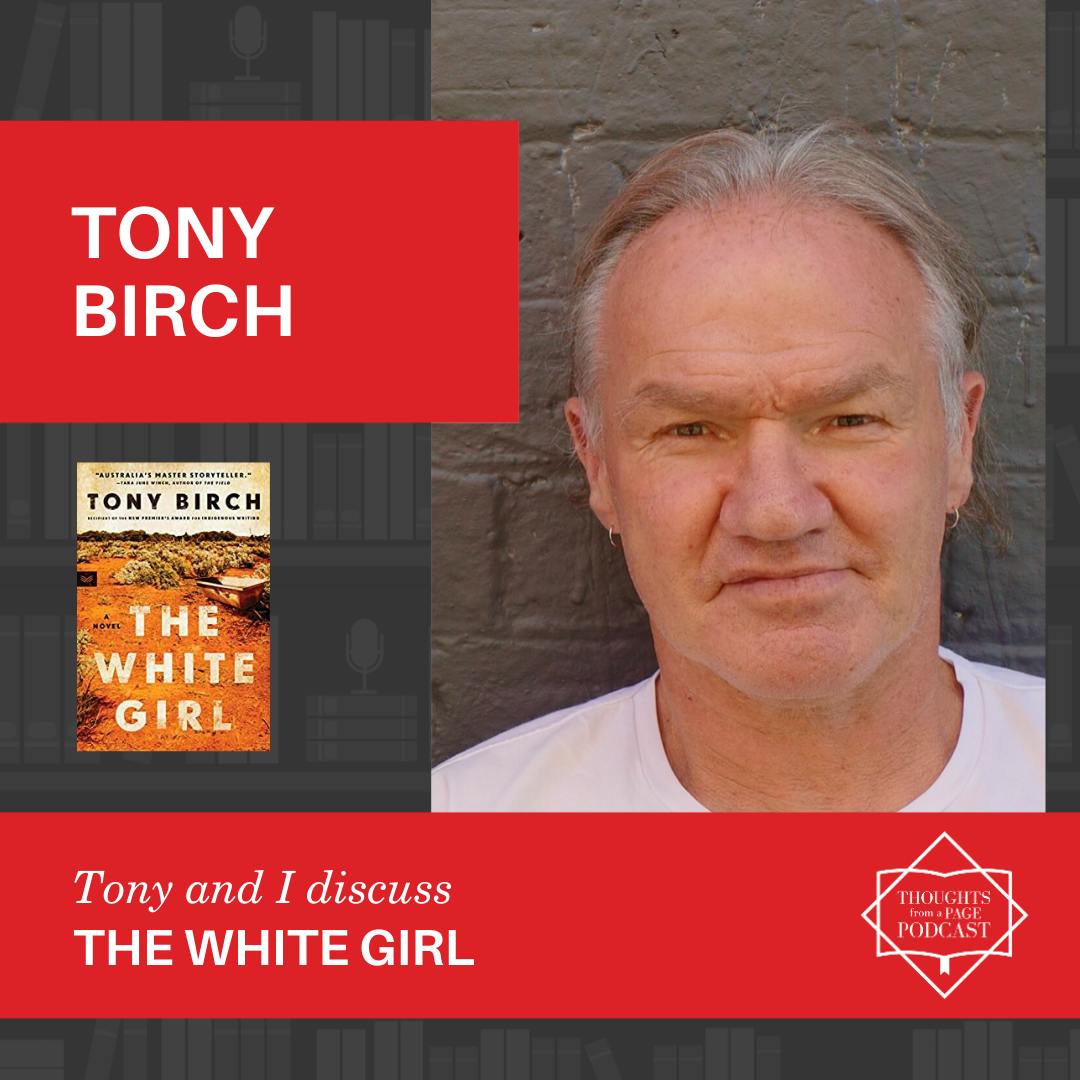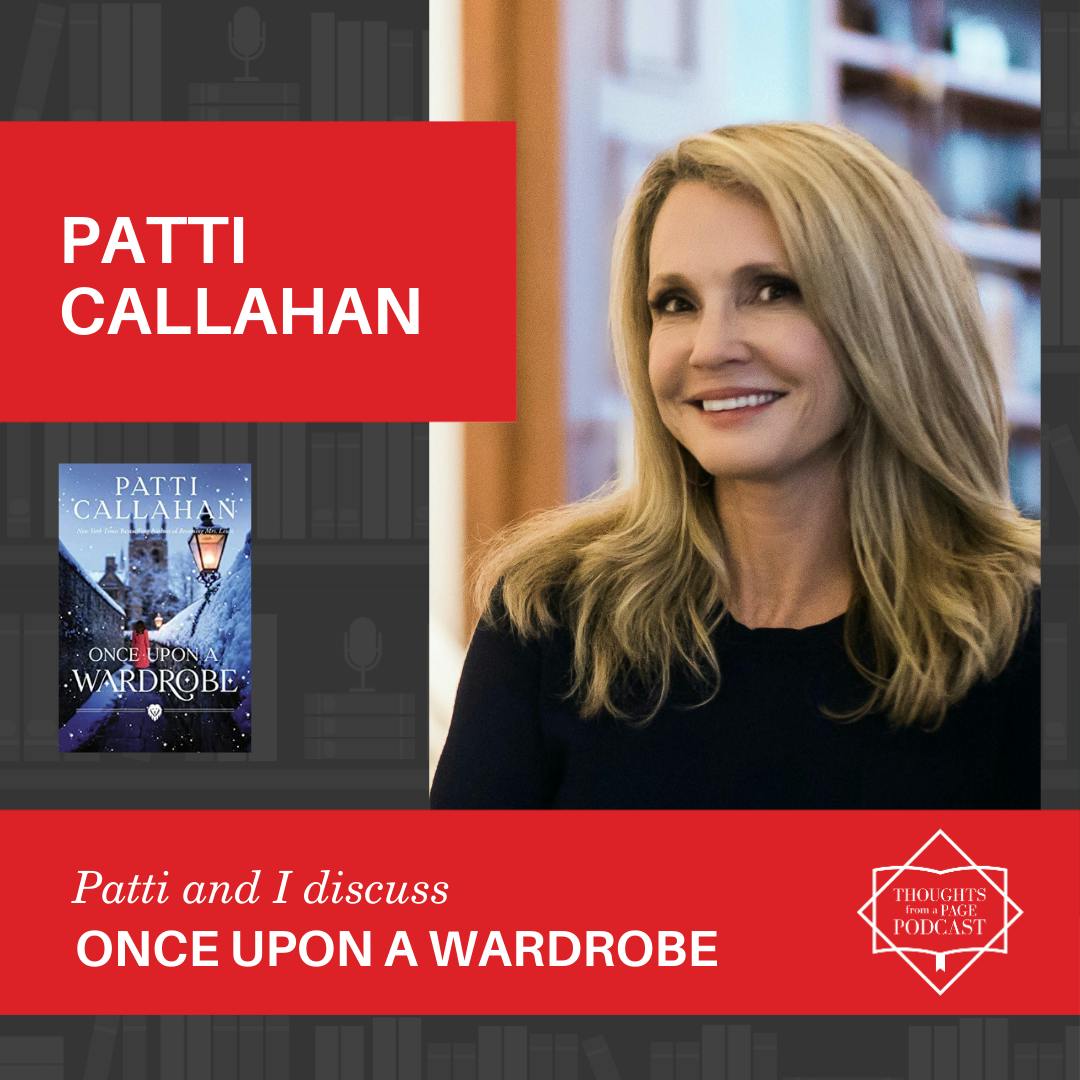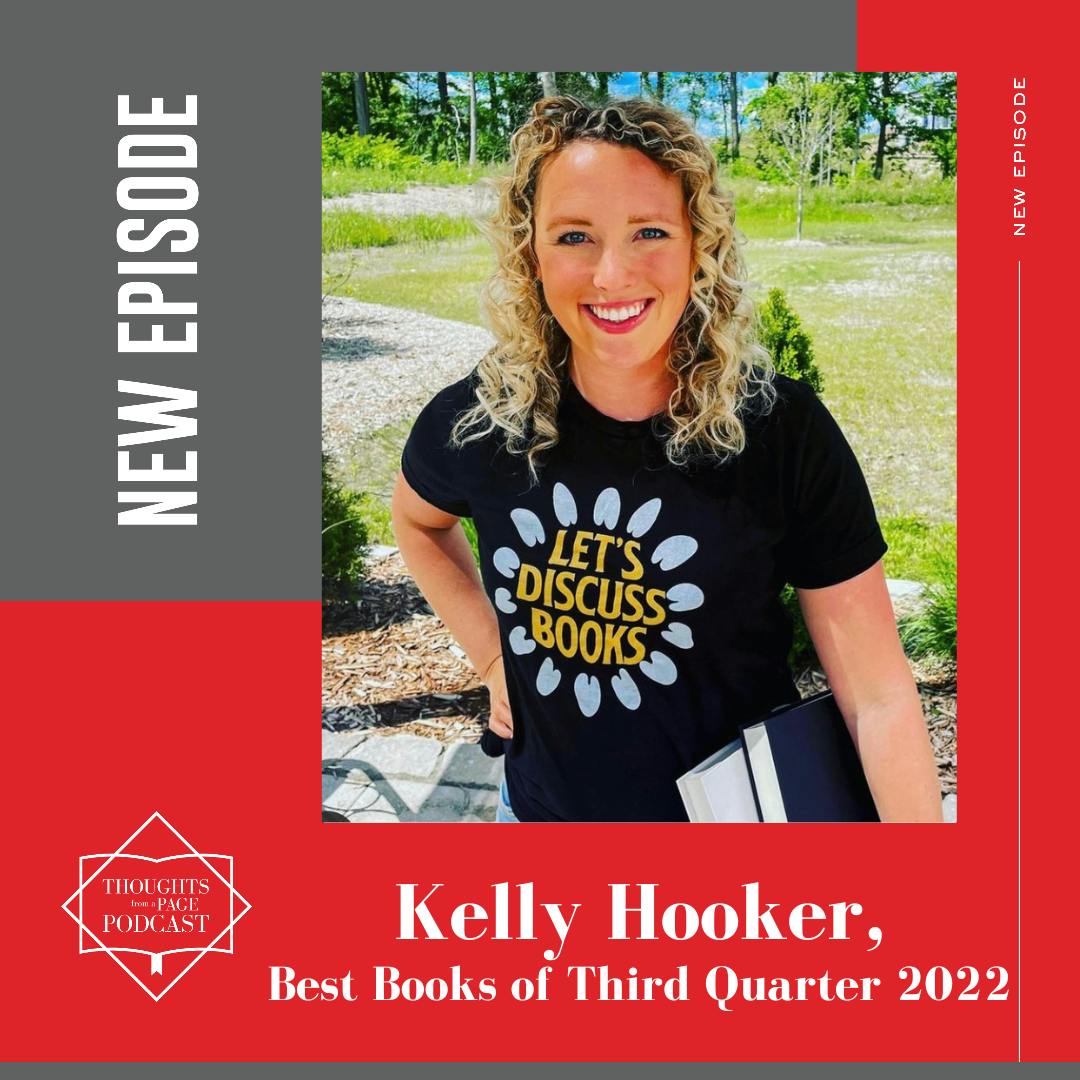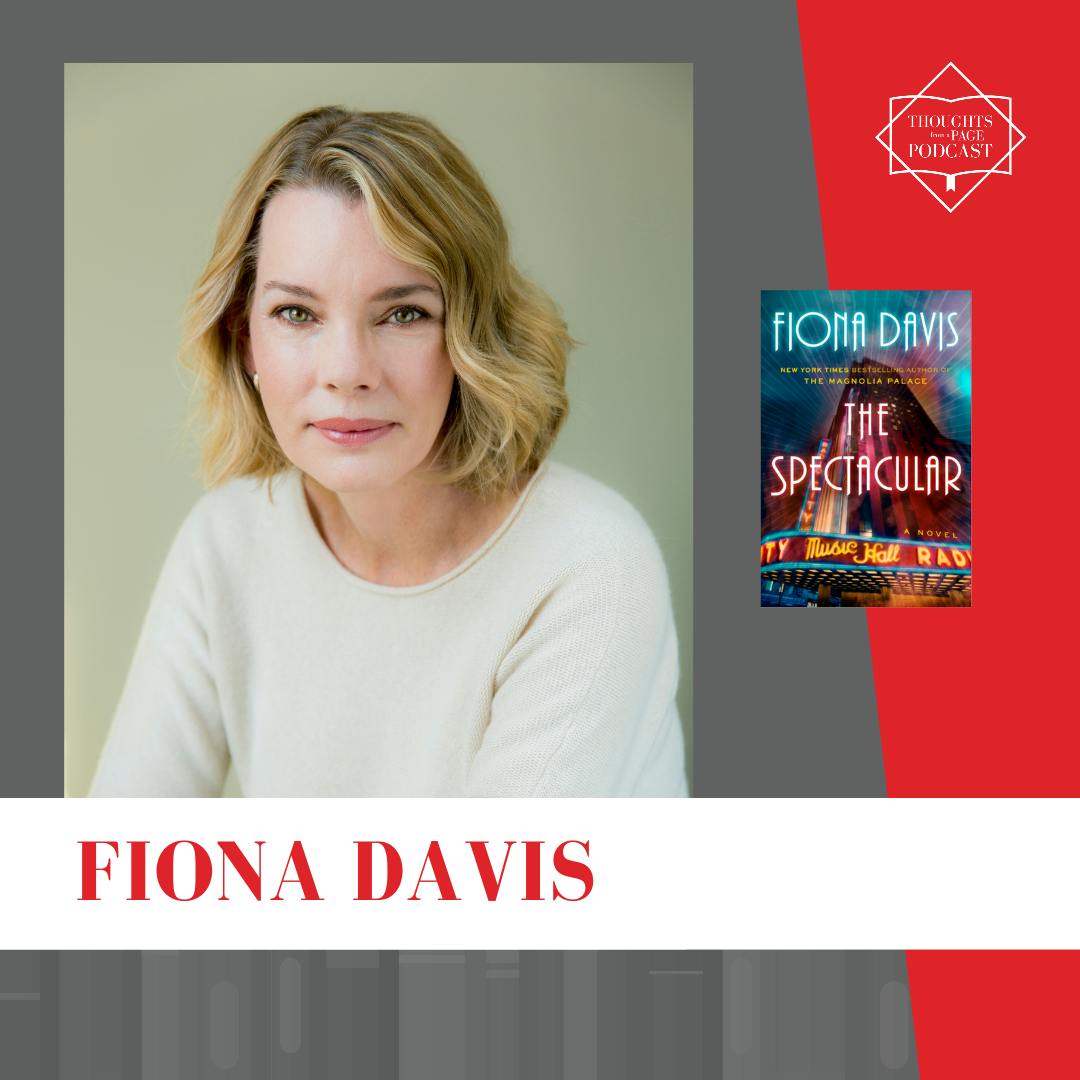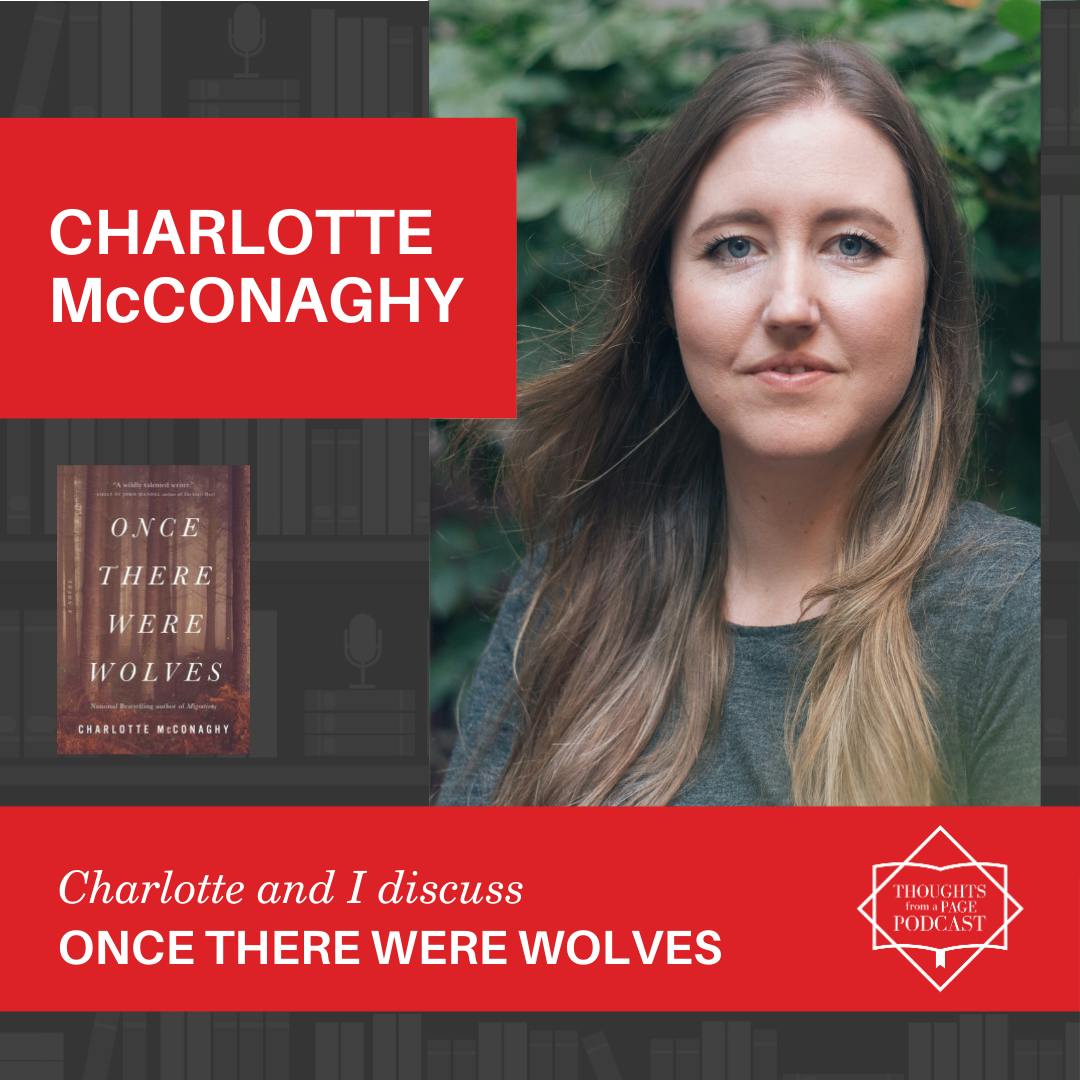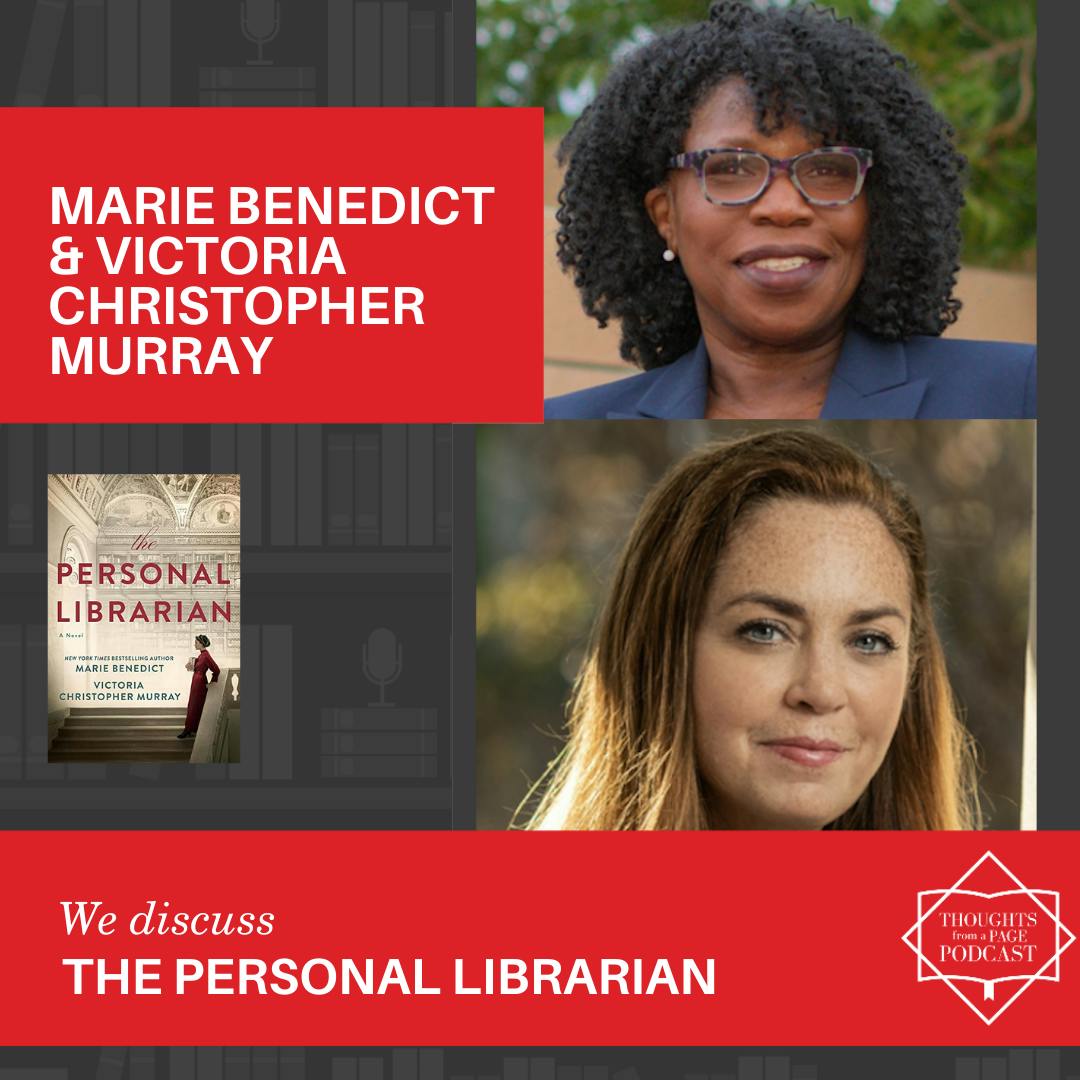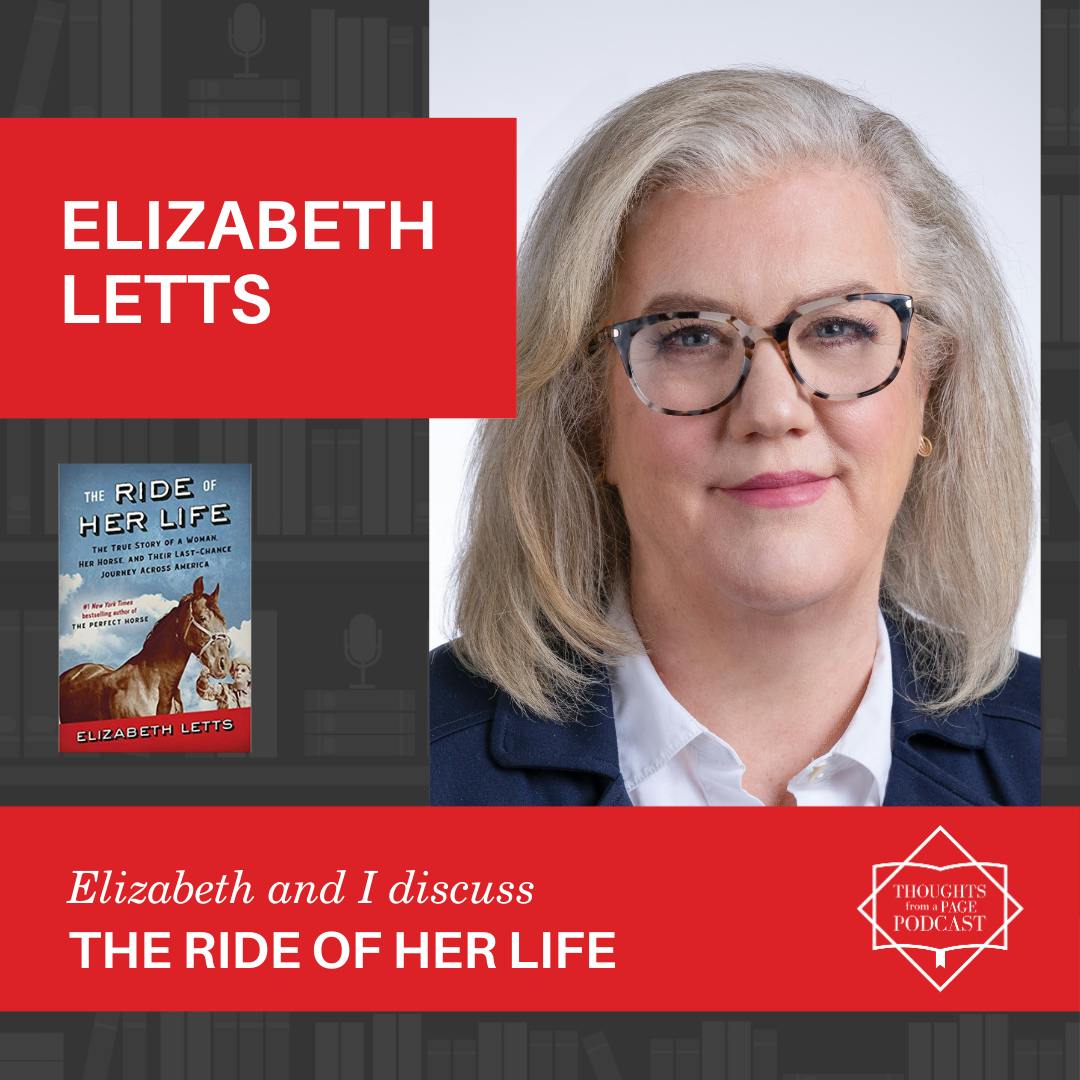Marie Benedict & Victoria Christopher Murray - THE PERSONAL LIBRARIAN
We discuss their new book The Personal Librarian, bringing Belle de Costa Greene to life, portraying Belle’s internal struggle, using the first person POV to tell a more personal story, writing partnerships, their July GMA book club selection, and much more.
We discuss their new book The Personal Librarian, bringing Belle de Costa Greene to life, portraying Belle’s internal struggle, using the first person POV to tell a more personal story, writing partnerships, their July GMA book club selection, and much more.
Victoria’s recommended read is:
- Yellow Wife by Sadeqa Johnson
Marie’s recommended read is:
- Boy, Snow, Bird by Helen Oyeyemi
Support the podcast by becoming a Page Turner on Patreon here. Other ways to support the podcast can be found here.
If you enjoyed this episode and want to listen to more episodes, try Marie Benedict, Erika Robuck, Gill Paul, Vanessa Riley, and Pam Jenoff.
The Personal Librarian can be purchased at the Conversations from a Page Bookshop storefront.
Learn more about your ad choices. Visit megaphone.fm/adchoices
SUMMARY KEYWORDS
book, Marie, Victoria, Belle, people, librarian, world, read, Morgan, Cindy, talk, library, passing, writing, life, interview, conversations, loved, personal, write
SPEAKERS
Marie Benedict, Cindy Burnett, Victoria Christopher Murray
Cindy Burnett 00:06
This is the Thoughts from a Page Podcast which is now a member of the Evergreen Podcasts Network. My name is Cindy Burnett, and each episode I interview authors about their latest works or others in the book world about their roles, what those roles entail and the books they love. For more book recommendations, check out my earlier episodes and my website thoughtsfromapage.com and follow me on Facebook and Instagram at @thoughtsfromapage. Thanks to the individuals that have joined my Patreon group as Page Turners. I am thrilled to chat books with you and greatly appreciate the support. Thanks to Maggie Garza of HTX Real Estate Group for sponsoring this podcast through December. Today I am interviewing Marie Benedict and Victoria Christopher Murray about The Personal Librarian. Marie is a lawyer with more than 10-years experience as a litigator. A graduate of Boston College and the Boston University School of Law, she is the New York Times and USA Today bestselling author of The Only Woman in the Room, The Mystery of Mrs. Christie, Carnegie's Maid, The Other Einstein, and Lady Clementine. Victoria is an acclaimed author with more than 1 million books in print. She has written more than 20 novels, including Stand Your Ground, an NAACP Image Award Winner for Outstanding Fiction and a Library JournalBest Book of the Year. She holds an MBA from the NYU Stern School of Business. The Personal Librarian is one of my top reads of the year, and it's one of my July Buzz Reads top five picks. I absolutely loved it. I really enjoyed speaking with the two of them. And I hope you enjoy our conversation. Welcome Marie and Victoria. How are you guys doing today?
Victoria Christopher Murray 01:38
We're great.
Marie Benedict 01:39
Oh, so wonderful. And so happy to be here Cindy.
Cindy Burnett 01:42
I am so happy for you both to be here too. I have been looking forward to this interview for months. I read The Personal Librarian I think back in February, and it will definitely be one of my top reads for the year. And I just loved it. So I've been really excited to speak with you both.
Victoria Christopher Murray 01:55
Oh, thank you.
Cindy Burnett 01:58
Well, I usually start out with the author giving kind of a quick summary of the book for people that haven't read it. Would one of you like to talk a little bit about what The Personal Librarian is about?
Marie Benedict 02:07
Sure, I'll kick it off. This is Marie. The Personal Librarian is the story of Belle to Costa Greene. She was the personal librarian to the famous financier JP Morgan. And in her lifetime, she became really one of the most powerful people in the art world as she curated, collected, represented this magnificent collection of rare and priceless manuscripts that JP Morgan had collected and housed in this library that he had just built for himself. And she really rose up not just to become this powerful figure, but really one of the most prominent women in the career world. But she was only able to do so by hiding her true identity. She was actually a black woman, but because of this segregated, really racist world in which she lived in order to really thrive and be as successful as she was she had to pass as white.
Cindy Burnett 03:01
And when did her story become known? You know that that's what I was kind of curious about. When did someone discover that she was in fact black?
Victoria Christopher Murray 03:09
I think I'm going to let Marie answer the exact date, but when she passed away people did not know it was afterwards when they associated her with her father Richard T. Greener. Correct, Marie?
Marie Benedict 03:23
That's right. That's absolutely right. She died in 1950. And it wasn't until I think like somewhere in the 70s perhaps there was a scholarly article about her or about the Morgan. And that connection between Belle and her father, Richard T. Greener, was definitively made. And it was that connection that actually Belle tried to kind of hide from throughout her life. Right, Victoria?
Victoria Christopher Murray 03:48
Yes, she tried to hide that connection, because any connection to Richard T. Greener would have totally made her who she was. It would have outed her. So she could not be connected to her father. Though, Marie and I believe that she longed for him.
Marie Benedict 04:06
Right.
Cindy Burnett 04:07
Do you want to talk a little bit about him? Because I think that is one of the fascinating components of this story is his prominence and then the fact that she was able to pass.
Marie Benedict 04:16
So her father Richard T. Greener was the first black person to graduate from Harvard. He was brilliant. He was famous for his oration. He went on to become a professor when the University of South Carolina was briefly integrated. He got a law degree and became dean of Howard Law School, but what he was perhaps most famous for during his lifetime was his advocacy for equality. He was alongside people who are perhaps better known like Booker T. Washington and Frederick Douglass. He was an advocate for civil rights, in particular the Civil Rights Act of 1875, which, if it hadn't been overturned by the Supreme Court, would have set America on a path of equal rights, you know, in the 1870s. But that effort failed. And really segregation and the Jim Crow laws really rose up in reaction to that; the legacy for which he fought kind of faded away.
Cindy Burnett 05:13
I just thought that was such an interesting contrast, because it must have been even more difficult for her trying to find her place. And obviously, she did such an amazing job at what she did, but it had to be difficult with her father being who he was. I would think that would have probably troubled her some.
Victoria Christopher Murray 05:29
I think it did. I think it troubled her. And that was part of her struggle in being who she was, or pretending to be who she was. You know, that would have never worked in today's times because of the communication and social media and people would have connected them. And there were probably a couple of close calls, even back then. But that was the struggle, because I believe that her mother was part of the the movement for equality, right alongside her father, until the Civil Rights Act was overturned. And I think her mother saw the writing on the wall and said, this is not going to work for us, we have to become one way. And we have to become this way, we have to live our lives as white. And it had to be particularly difficult for Belle, because she was 16 years old when that decision was made. So she had 16 years of her father's teachings and what he believed and watching him go to work and hearing him speak. Marie and I constantly talked about what kind of struggle that had to be for her.
Cindy Burnett 06:40
I agree. And I thought about that as I was reading and I think you will kind of brought that to the forefront a number of times. Because that would have just been so difficult, as you said, growing up one way and then having to kind of reverse and do something completely different. But also she was bound by what was happening in the world at large.
Marie Benedict 06:57
Exactly. And you know, I think Victoria and I talk a lot about sort of the crossroads she found herself in. She was raised by this very strong, eloquent advocate for equality, really taught from her father, on one hand that all people should have equality. And from her mother, you know, her mother grew up in this free community of color that had been around for generations. They had their own very rich culture and rituals. And so she grew up with a lot of pride around herself and her family and her heritage. And then when they moved to New York, you know, as the years progressed, it became much clearer that that the fight that her father was engaged in wasn't going to succeed, at least not in the immediate future, and opportunities for them to live as white began to arise. And her mother, you know, as a lot of mothers wanting the easiest, best path for her child, or children, excuse me, Belle was one of many children. She wanted that for her children. And so it created a big rift, obviously, in the family, and I'm sure a rift within Belle herself.
Cindy Burnett 08:02
I definitely can see where it would have. How did you decide on the format to have it in kind of a diary/journal format, with Belle telling the story as if she were writing in her diary?
Victoria Christopher Murray 08:12
Well, I actually am going to let Marie answer this because the idea of this book was Marie's, and Marie read some of my other work and decided that she wanted to write the book together. But I think this is how you write most of these kinds of books. Right, Marie?
Marie Benedict 08:30
Right. Yeah, I don't think of them specifically as diary entries just more as a narration in the life if you will, right? You know, I think so often, women's histories, women's stories, and voices are lost to the past. Women's narratives and women's contributions were really not considered worthy of recording or keeping until recently. And so, you know, my kind of mission with this book, and really all my books is to put women back in the narrative where they really have them the whole time. But they've kind of been obfuscated by societal preconceptions. And so the idea of kind of putting them back in on a day-by-day basis and allowing the viewer to see them real time in the past is sort of my passion.
Cindy Burnett 09:17
Got it. I wasn't sure, with the date at the top and the way she was telling the story, if it was meant as a journal, or if it was more, like you said, just sort of a day-to-day description of what was happening in her world.
Marie Benedict 09:27
I will say and this is something I'm sure Victoria is gonna want to jump in on. But it was really important to both of us to write in the first person. I mean, I do that with all my books, and that's what Victoria does as well. We write fiction, right? And so even though it's very heavily grounded in research and the facts as we know them, you know, this is our version of Belle in this particular piece of history, but we wanted, I always want to and I know Victoria wants it as well, to make the experience feel immediate, and the character really come alive and so I can see how writing in this way kind of lends itself to the look of a diary. Right? And it kind of in some ways is because you're recording her, not just the events of life, but her intimate thoughts.
Victoria Christopher Murray 10:11
Yes. And one of the things that I, I always write in first person so that when, well in my last books, my most recent books, so that the reader can feel as if they're talking to the character. And that's one of the things that people have said about this book, one of the greatest compliments I've read in the reviews is, people have said that it felt as if Marie and I knew Belle, because it was Belle speaking. And that's so important. I think, when you want the readers to relate to a character.
Cindy Burnett 10:46
I did feel like it was a personal glimpse into her life, which is maybe again sort of the idea of a journal or a diary, because I felt like she was kind of recording her thoughts and that you were in her mind, which was so interesting.
Marie Benedict 10:58
Writing it in that way and bringing the reader sort of along for the ride with them, really, hopefully makes them come alive. And that's the kind of reaction that Victoria and I have heard.
Cindy Burnett 11:07
Most definitely. Well, let's talk about your exciting news of the Good Morning America book club. Do y'all want to talk a little bit about being selected for that?
Marie Benedict 11:14
Oh my goodness!
Victoria Christopher Murray 11:15
Well, that was so much fun. Well, we found out months ago, I don't even remember the exact date. And so we were so excited and called each other immediately. But we could not tell anyone for months that we were selected as their July book club of the month. And that is such a big deal, because you think about the number of books they can select, and they only choose one. So that's been very exciting. We had a chance to sit down with Deb Roberts, of Good Morning America, well of ABC I should say. And talk to her about the book. And it was fascinating because we did it in the JP Morgan Library, which is one of the most beautiful places in New York. And Marie and I actually had the chance to go to the library before we started working on this. And, Marie, I'm going to pass it to you because I think it would be great that people find out how you started going to the library.
Marie Benedict 12:14
Well, I started going to, I used to live in New York City, as did Victoria too. But I was a lawyer in New York City for a long time before I started writing books. And I was, given how much I love what I do now, you can imagine that I maybe didn't love being a bedraggled New York City lawyer. And I used to kind of sneak off and during the day and sometimes in the evening to the various cultural institutions in New York just really kind of imagining a different life. And the Morgan Library was one of those places that I used to like to go. It's. as Victoria mentioned, it's so stunning. And if you watch actually, our second segment on the Good Morning America Book Club was aired this morning, which Deborah Roberts interviewed us in the Morgan Library, which was so exciting. But years ago, what I'm one of my visits, one of the docents happened to mention Belle de Costa Greene, JP Morgan's personal librarian and the role that she played really in the creation of the Morgan Library, not just as a world class collection, but as a public institution. And Belle worked around to my list of women that I want to write about and sat there for many, many years. Because it was so important to me to have a partner to write the book with. There's a lot of things I can imagine as a writer of fiction, but I knew Belle deserved to have a woman of color, a black woman write the story alongside me. And it wasn't until I found Victoria that I knew I could do it. Or that we could do it.
Cindy Burnett 13:35
Well, I have never been to the library, which I can't even believe because I have been to New York so many times. So the next time I'm up to New York, that's like the number one thing on my list. I can't wait to go there.
Victoria Christopher Murray 13:44
That'll be great.
Marie Benedict 13:45
Oh, yeah, you have to - it's so stunning. It's like the inside, I always described it this way, but it's like the inside of a jewelry box, like crimson and gold. And it is just brimming with treasures. It's really stunning.
Cindy Burnett 13:58
I can't wait, and I can't wait to watch your segment. I saw that you had posted about it this morning. And so I was like, okay, later today, I need to watch it.
Marie Benedict 14:04
Yeah.
Cindy Burnett 14:05
Well, what about writing together? So this was new for both of you all right? To write with someone else?
Victoria Christopher Murray 14:10
No, it was not new for me.
Cindy Burnett 14:13
Oh it wasn't? Okay.
Victoria Christopher Murray 14:15
I'd written six novels with another writer. And I absolutely love collaborations because I do think you get a richer book when you're seeing more than one side. And so my agent sent me this proposal to do the collaboration with Marie, and Marie had never done a collaboration before. But once we were on the phone together, I knew we could do it. I wasn't sure if Marie knew we could do it because she had never done it before. But I think you have to find your soul mate writing partner. I don't think two people, any two writers, can sit down, just any two writers can sit down and write together. It has to be be someone who's going to complement your strengths, well complement your strengths and really fill in on your weaknesses. We talked a little bit about the language, which was so much of what Marie can do. And I'm a contemporary writer. So I did not know the language of the early 20th century. But not only do you have to fill in for each other under strengths and weaknesses, but you have to trust each other as a writer, because you will change things or you will discuss things or you disagree about things. And both of you have to know for sure that you're doing it for the good of the book. It's nothing personal. And the first conversation I had with Marie, I knew we could do it. I felt like she was my sister. I mean, I really feel like she's my sister now. Like, I feel like my parents would claim her sometimes way more than me. But I loved, loved, loved working with Marie on this book.
Marie Benedict 16:02
Oh my gosh, it was like, Cindy, it was like, the delight of a lifetime honestly. When I look back at the experience of writing, and now releasing The Personal Librarian into the world, I'm so happy that people will get to know about Belle, you know, and that when they visit the Morgan, they'll see her where she is and where she's been all along. But to me personally, the gift has been my friendship and my sisterhood with Victoria really. She talked about, you know, that first time we spoke, and honestly, I was like, it's hard to explain it, it's gonna sound kind of crazy. But I really felt from that very first moment that I knew that not only could we write the book, but that we could be close. And that has really panned out in droves, in ways I couldn't even imagine throughout the course of this experience. And at the core of it is exactly what Victoria said, it's trust. I mean, especially when you're writing about issues that are as potentially fraught and personal and painful as racism. And I just feel so honored that Victoria felt that trust in me to share with me her own experiences, which you know, which are painful, which are daily. For me, that has been the greatest gift. And I hope that when people read the book, that they will not only see Belle and look at the world a little differently, not just at the Morgan, but around them, but that they will have conversations with people like Victoria and I did, with people who are not like them, people who are different and make themselves vulnerable to have those hard, sometimes difficult conversations.
Cindy Burnett 17:38
Well, and I think that is so important. And I think that it is a very timely book, even though it takes place over 100 years ago, and sadly, that it is timely. But I think you know, we're learning that we need to have more of these types of conversations and interact more with people who are in a different situation to understand better and not just say the words, but try to really walk the walk versus just talk the talk.
Victoria Christopher Murray 18:01
And Cindy, you know, one of the blessings of this book with Marie when we were sitting down together to do it was we did our edits, right in the middle of the pandemic, well, the beginning, I guess of the pandemic. And while we were doing that, then the whole Black Lives Matter movement started after May. And so not only were we writing Belle's story and really trying to bring to life the issues and the struggles that she had to deal with race, because she was living in two worlds. But then we had to talk to each other every single day about what was going on. Marie would call every morning; we would talk to do our work. But the first thing she wanted to know was how I was doing. And there's never been a time in my life where, of course I've had lots of white friends, but not to sit down and to talk about race daily, every single day. And then someone who wanted to hear not just you know, not just in passing, but Marie really wanted to know, how was I doing? And what's so interesting about those conversations about race is that I had to pull Marie back from the edge just as many times as she had to do it for me. And so it was just fascinating, and a wonderful time in our friendship that was already there just deepened to levels that I wish everyone could have a friendship, like Marie and I have.
Marie Benedict 19:40
I do too.
Victoria Christopher Murray 19:41
I really do. If every person had one close, close friend like this where you have honest discussions about everything, including race, because race is the one thing that we try to stay away from, but we weren't able to. If everybody can do that, then we'll all be in a better place.
Cindy Burnett 20:04
Well, and I think your point about having daily or regular discussions where it's something that you're not just have one big two-hour-long discussion, but instead you address it on a regular basis, chat about it. I think that's how people learn the most too because it's an ongoing conversation. You and Marie talk, then Marie maybe sees something out in the world that wouldn't have struck her as funny before, and she's like, Oh, that's what we were just talking about. And then you know, you kind of, you incorporate it into your daily life and your knowledge base and your understanding of what's going on I think a lot better when it's a continual thing versus just a one off.
Marie Benedict 20:35
Absolutely. And I think too, you know, reaching that level, where you can make yourself vulnerable and make yourself talk about things that you wouldn't normally talk about things that sometimes are a little bit uncomfortable, or very uncomfortable in some situations. And you know, the way Victoria and I like to think of it is, you know, in some ways talking about a book allows you to talk about those things in a way that's a little bit removed, right? Especially if it's about the past a little bit safe, and hopefully will kind of encourage conversations that otherwise may not actually happen.
Cindy Burnett 21:09
I think that's a great point. And I know you guys are on kind of a short timetable. So I hate to have to cut the interview down. But I want to hear what you both have read and recommend really quickly before we wrap up.
Marie Benedict 21:19
Oh, Victoria, you start.
Victoria Christopher Murray 21:21
Because Marie knows one of my favorite books this summer is Yellow Wife by Sadeqa Johnson, an amazing historical fiction piece. I recommend that to everyone. Enough people have not heard about this book.
Marie Benedict 21:39
And Victoria loves it so much that I've read it. And I loved it, too. I mean, it was interesting, the way I didn't realize that there was going to be just a little bit maybe the end, right, Victoria about passing. And it was, it was amazing the way in which I haven't written this book and looked at these issues so deeply, how much that resonated with me. And our book is not a book about passing per se, it's about Bella de Costa Greene. And that's a you know, big facet of her life. But now the sort of sacrifices attendant to passing are so like, I feel like I have an antenna for now. Right? And so when those issues came up in Yellow Wife, I just really felt a deep sensitivity to them. And it's a beautiful book and a hard book.
Victoria Christopher Murray 22:25
It's a brutal book.
Marie Benedict 22:27
Brutal book.
Cindy Burnett 22:27
It is a brutal book. I have read it, and I interviewed her, and I just she's wonderful. I really enjoyed speaking with her. But it is a hard book to read. But it's so important.
Marie Benedict 22:36
So important. So yes.
Cindy Burnett 22:38
Any other recs before we wrap up?
Marie Benedict 22:40
Oh, gosh, I just read and this is kind of related to what we're talking about. It's by Helen, I'm not going to pronounce this right. Oyeyemi. It's called Boy, Snow, Bird. And she does kind of these retellings of fairy tales from a very modern viewpoint with some very modern issues. And it's just a beautifully written kind of, it's a little bit historical fiction, a little bit fantasy. And it's amazing. It really is amazing. And it also talks about issues of passing.
Cindy Burnett 23:08
Well, great. These are both wonderful recommendations, and I can't wait for everybody to learn about them. And I really loved speaking with both of you. And just can't wait for everyone to be reading The Personal Librarian and congratulations on the Good Morning America pick.
Victoria Christopher Murray 23:22
Oh, thank you. Thank you so much.
Marie Benedict 23:24
Thank you so much. We loved talking with you, Cindy. Much appreciated.
Cindy Burnett 23:29
Absolutely loved talking with both of you, too. Thank you so much for listening to my podcast. If you liked this episode (and I hope you did), please consider joining my Patreon as a Page Turner. Follow me on Instagram at @thoughtsfromapage, tell all of your friends about the podcast, and rate it or subscribe to it wherever you listen to your podcasts. I would really appreciate it. The book discussed today can be purchased at the Conversations from a Page Bookshop storefront, and the link is in the show notes. Thanks to Maggie Garza for sponsoring this episode, and I hope you'll tune in next time.

Marie Benedict and Victoria Christopher Murray
Authors of THE PERSONAL LIBRARIAN
Marie Benedict is a lawyer with more than ten years' experience as a litigator. A graduate of Boston College and the Boston University School of Law, she is the New York Times and USA Today bestselling author of The Only Woman in the Room, The Mystery of Mrs. Christie, Carnegie's Maid, The Other Einstein, and Lady Clementine. All have been translated into multiple languages. She lives in Pittsburgh with her family. www.authormariebenedict.com
Victoria Christopher Murray is an acclaimed author with more than one million books in print. She has written more than twenty novels, including Stand Your Ground, an NAACP Image Award Winner for Outstanding Fiction and a Library Journal Best Book of the Year. She holds an MBA from the NYU Stern School of Business. www.victoriachristophermurray.com
New to Thoughts from a Page Podcast?
Here are some great episodes to start with.


























